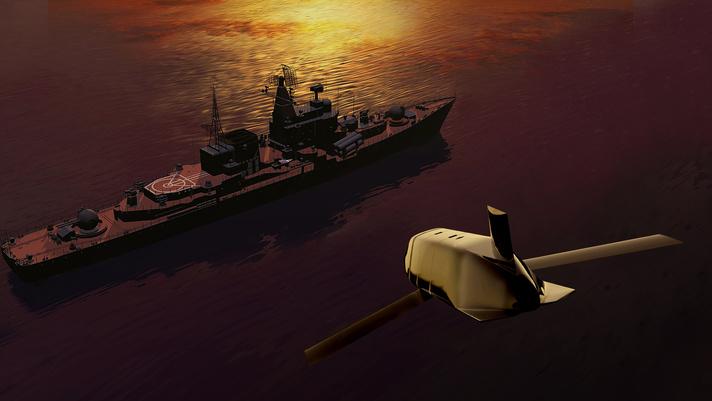BAE Systems has received a $38 million contract from Lockheed Martin for additional guidance systems for Lockheed Martin’s Long-Range Anti-Ship Missile (LRASM) program. BAE Systems’ advanced radio-frequency sensor enables LRASM to strike specific, high-value maritime targets from long range in aggressive electromagnetic warfare environments. Work on BAE Systems’ seeker takes place at the company’s advanced manufacturing facilities in Wayne, N.J.; Greenlawn, N.Y.; and Nashua, N.H.
The Long Range Anti-Ship Missile (LRASM) is a precision-guided anti-ship missile designed to give the U.S. Navy the ability to strike high-value targets from long range while avoiding counter-fire. The LRASM sensor uses semi-autonomous guidance and target cueing data to precisely locate and attack targets, reducing reliance on Airborne Intelligence, Surveillance, and Reconnaissance (ISR) platforms, networking links, and GPS navigation. For over 60 years, BAE Systems has been a leader in advancing the development of electronic warfare systems. First fielded in 2018, the LRASM sensor continues that leadership tradition in a small form factor electronic warfare solution.

“We’re advancing the state of small electronic warfare systems through our efficient LRASM seeker design, which delivers discriminating capabilities at an affordable cost,” said Larry Glennon, Small Form Factor product line director at BAE Systems. “Our seeker enables the U.S. Navy, U.S. Air Force, and our allies to find the proverbial needle in the haystack with high-performance, multi-mission missiles.”
The LRASM provides warfighters with a capable precision strike weapon intended for use from airborne platforms including B-1B Lancer bombers, F/A-18E/F Super Hornet fighters, F-35 Lightning II fighters, P-8A Poseidon maritime patrol aircraft, and surface vessels via the Mark 41 Vertical Launching System. The missile’s diversity of launch platforms, survivability, range, and lethality provide critical capability and flexibility to warfighters – allowing them to project strength and strike when necessary. With its superior range and survivability, LRASM is becoming an essential part of the modern warfighter’s arsenal.















